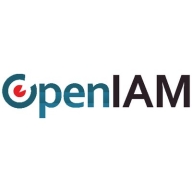

Find out what your peers are saying about Cisco, Hewlett Packard Enterprise, Fortinet and others in Network Access Control (NAC).

Cisco Identity Services Engine (ISE) offers comprehensive network access control and visibility, supporting features like 802.1X authentication, profiling, and posturing. It integrates with Microsoft and other Cisco products, facilitating robust security policies across distributed networks.
Cisco Identity Services Engine is a key player in network access control, offering centralized management and a user-friendly interface. It supports zero trust principles and provides strong authentication for wired and wireless networks. ISE's capabilities include granular security policies, enhanced device posturing, and seamless integration, bolstering security infrastructure. Users benefit from its dual authentication through EAP, simplifying access management across networks.
What are the key features of Cisco ISE?In industries like finance, healthcare, and education, Cisco ISE is pivotal for securing wired and wireless networks, implementing BYOD policies, and managing user access. Organizations leverage ISE for effective authentication and authorization, while maintaining compliance with industry security standards.
The modern enterprise consists of both on-premise and cloud-based solutions often being utilized by users who are often geographically distributed. These users may also be a mix of employees, contractors, customers, vendors and so forth. OpenIAM Identity Governance (IGA) simplifies the way in which organizations manage identities across this complex landscape.
We monitor all Network Access Control (NAC) reviews to prevent fraudulent reviews and keep review quality high. We do not post reviews by company employees or direct competitors. We validate each review for authenticity via cross-reference with LinkedIn, and personal follow-up with the reviewer when necessary.